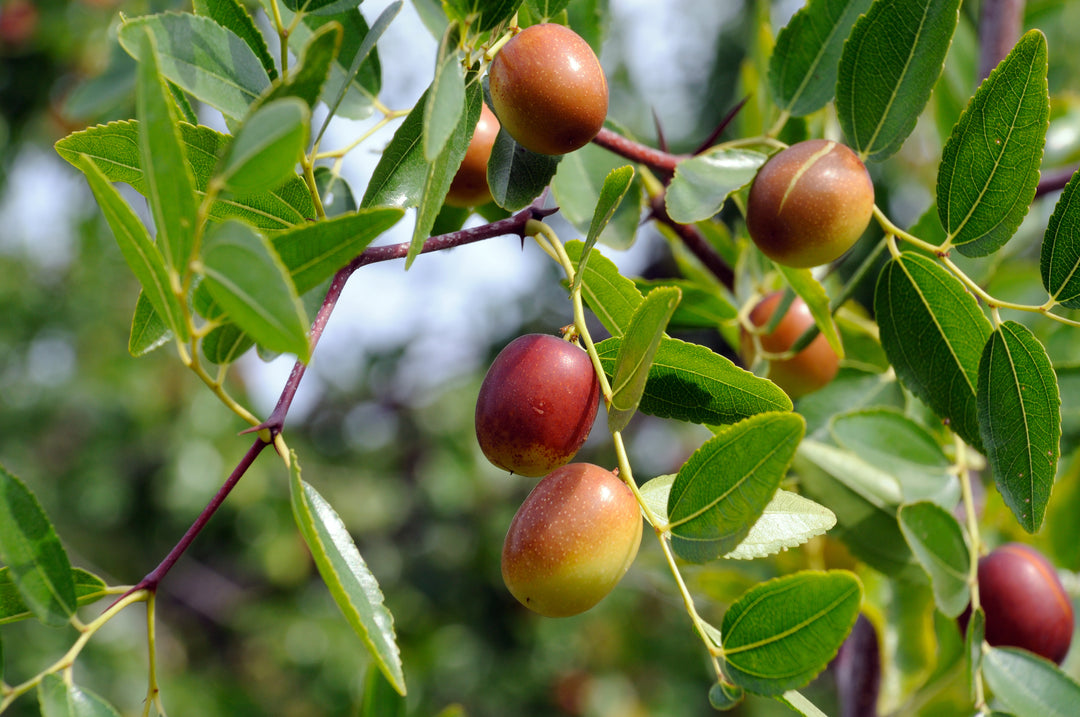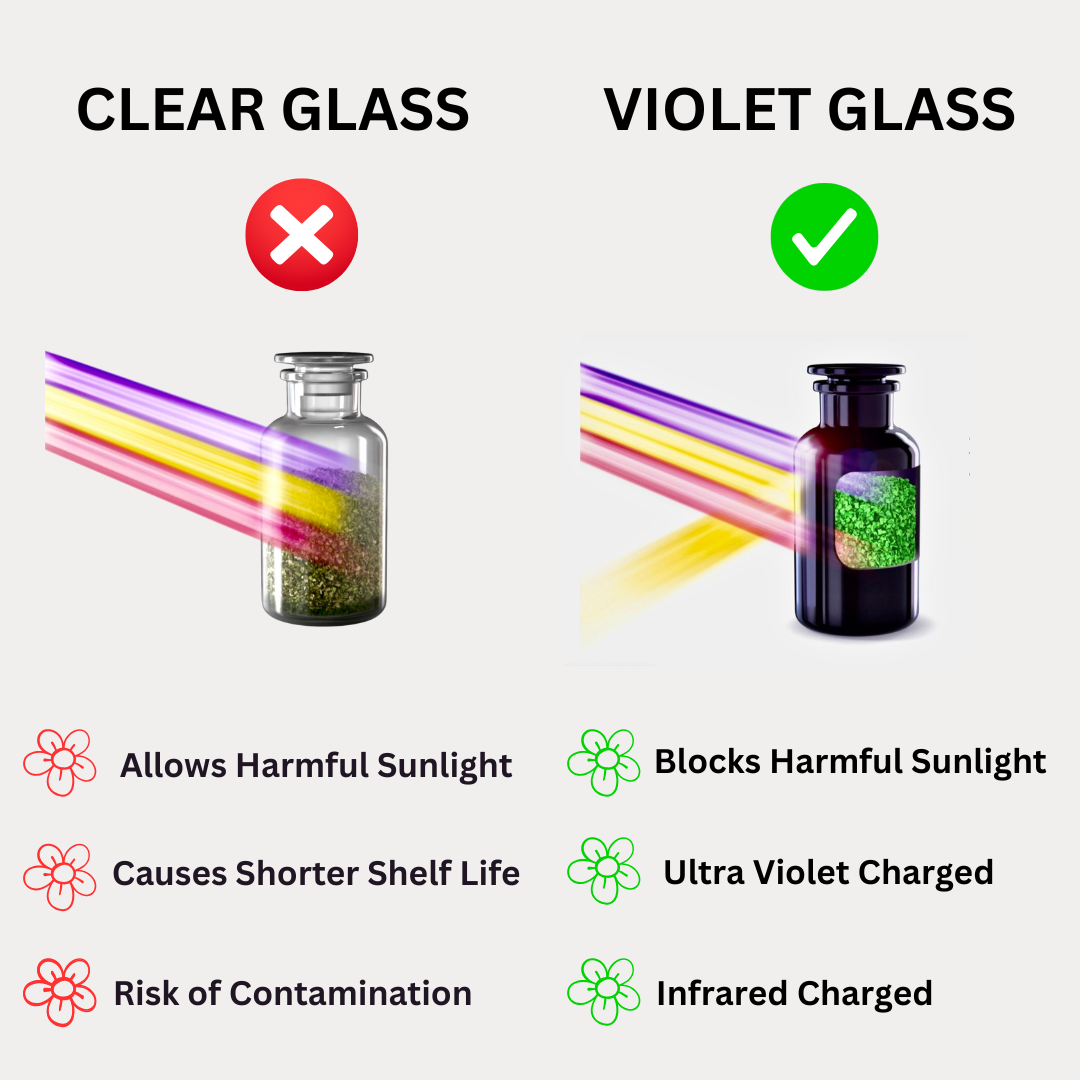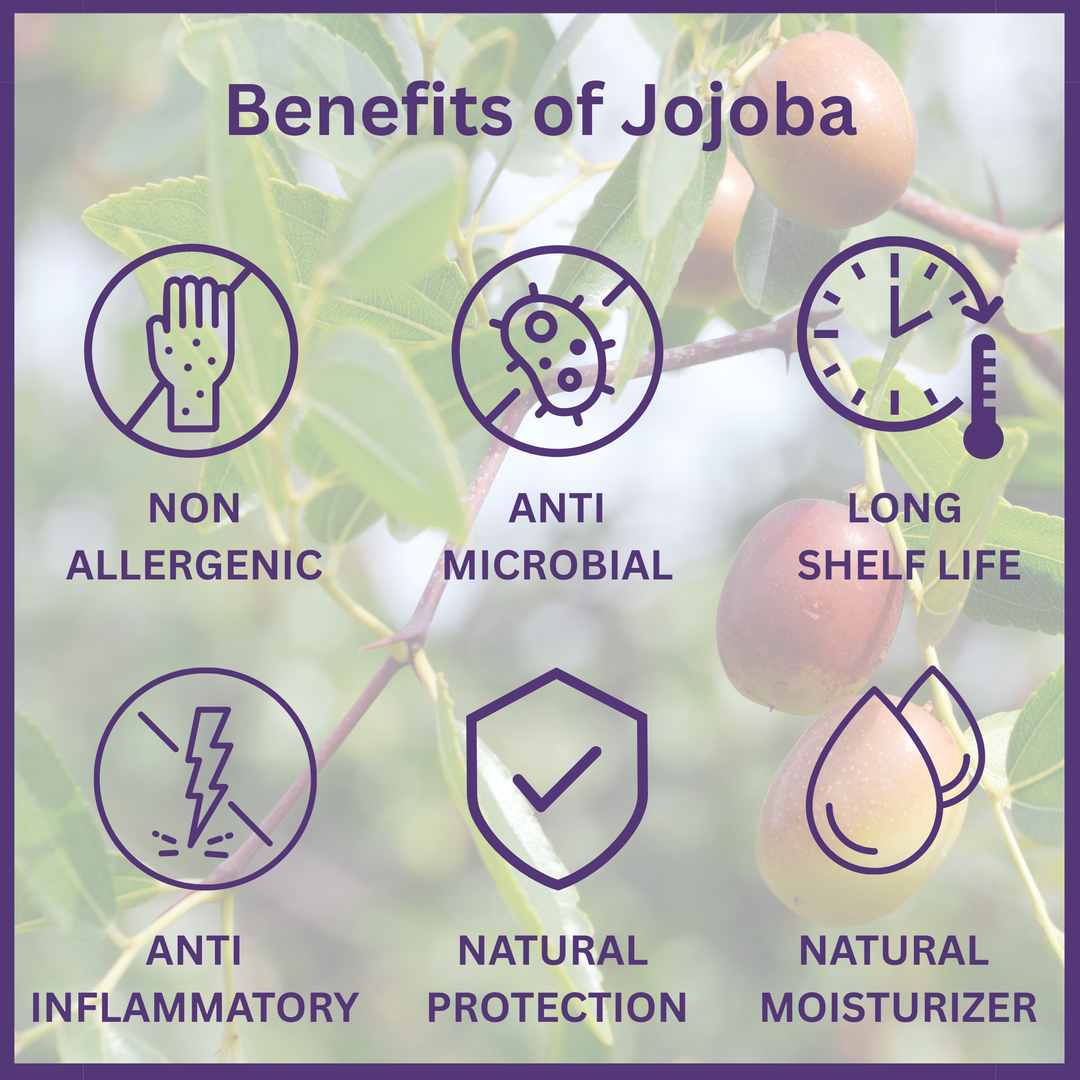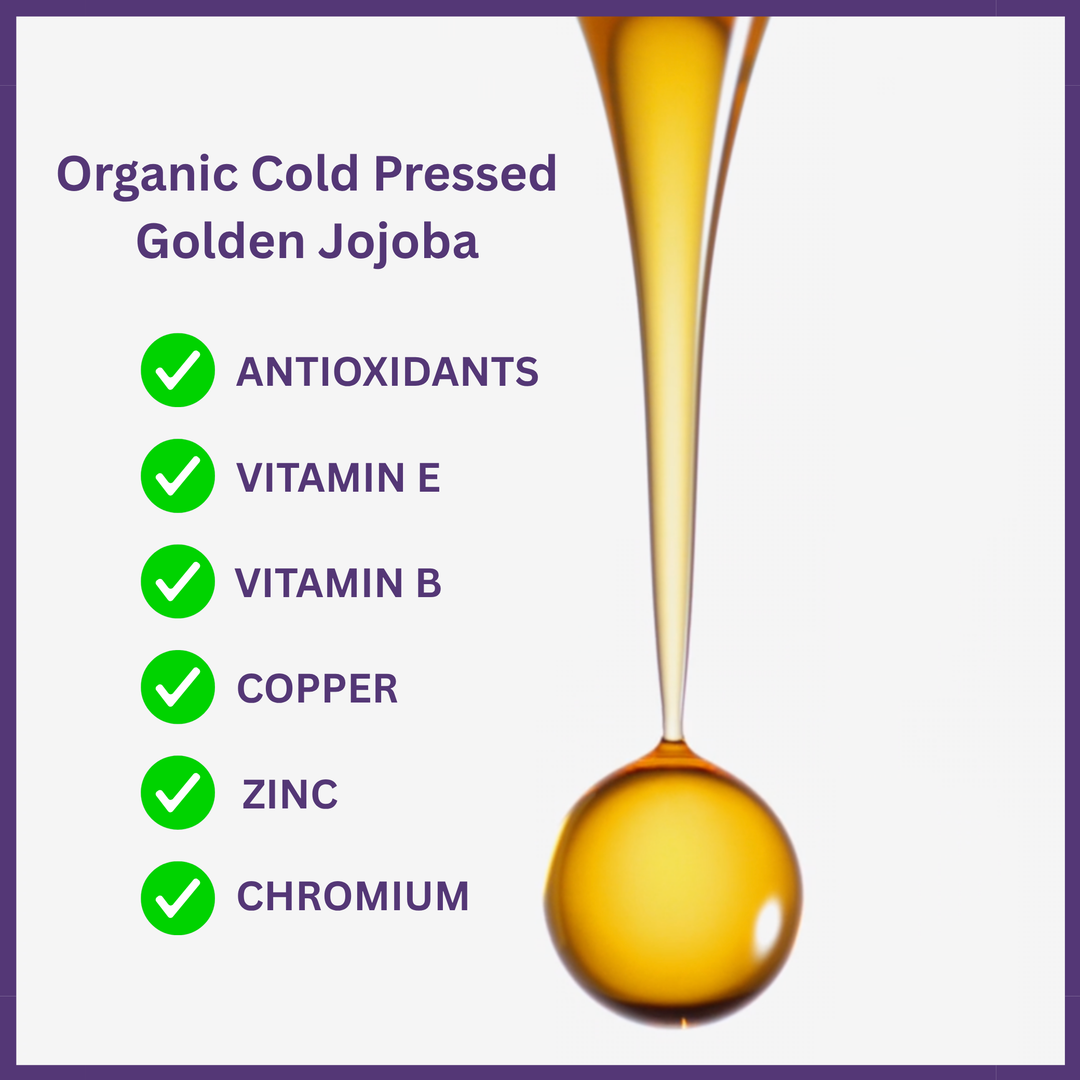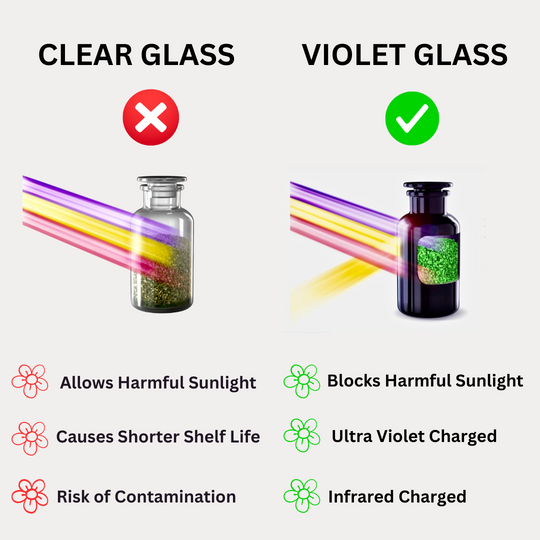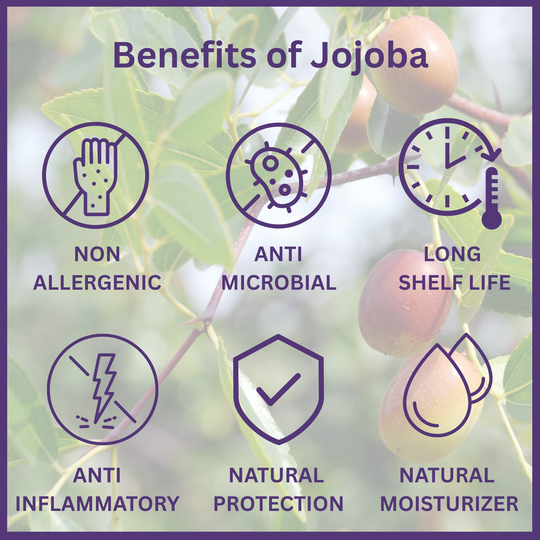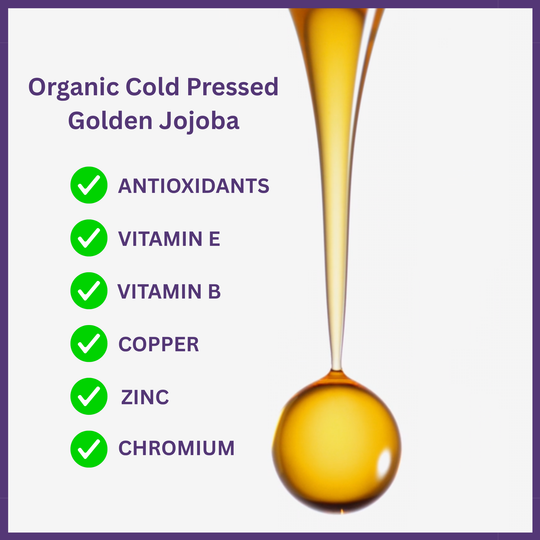FAQ's
One of the standout features of jojoba oil is its non-comedogenic nature, meaning it is unlikely to clog pores. Here are some reasons why jojoba oil is suitable for various skin types:
Similar to Sebum: Jojoba oil closely resembles human sebum, the natural oil produced by the skin. This similarity helps it to balance oil production without overwhelming the skin.
Lightweight Consistency: Jojoba oil has a lightweight texture that absorbs easily into the skin without leaving a greasy residue, reducing the risk of blocked pores. It provides hydration and prevents moisture loss while keeping the pores clear, making it suitable for oily and acne-prone skin.

Jojoba oil is often recommended for those struggling with acne due to its unique properties. Here are several benefits of using jojoba oil for acne-prone skin:
- Non-Comedogenic: Jojoba oil is non-comedogenic, which means it won't clog pores. Its molecular structure closely resembles human sebum, allowing it to balance oil production without overwhelming the skin.
- Regulates Oil Production: Jojoba oil helps to regulate the skin's natural oil production. By providing adequate moisture, it signals the skin to produce less sebum, which can help prevent acne breakouts.
- Anti-Inflammatory Properties: Jojoba oil has anti-inflammatory properties that can help soothe and reduce redness and swelling associated with acne outbreaks.
- Antioxidant Rich: It contains vitamins E and B complex, which help protect the skin from free radicals and promote healing, making it an excellent choice for acne-prone skin.
- Moisturizes Without Greasiness: Jojoba oil provides hydration without leaving a greasy residue, making it suitable for oily and combination skin types.

Here are some key points about the classification of jojoba:
- Non-Nut Classification: Jojoba is technically categorized as a seed oil, not a nut oil. The term "tree nut" typically refers to the edible seeds of certain trees, such as almonds, walnuts, and cashews.
- Oil Composition: Jojoba oil is a liquid wax ester rather than a true oil and mimics the natural oils produced by the skin, making it suitable for various skin types.
- Allergy Considerations: Because jojoba is not a true nut, it is generally considered safe for individuals with nut allergies. However, as with any product, it is advisable to perform a patch test to check for any potential allergic reactions.
